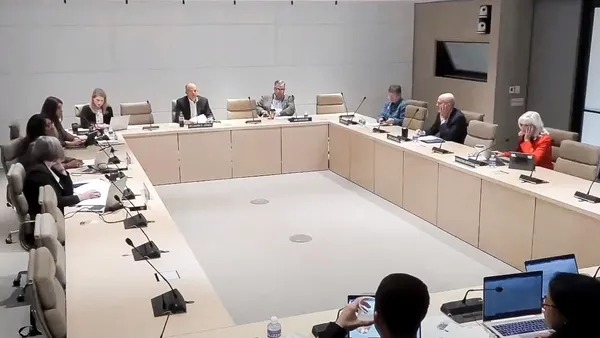Last year, the Securities and Exchange Commission paid $83 million to three people who secretly tipped off the agency about misuse of a customer fund by Bank of America’s Merrill Lynch brokerage unit.
As a result, the SEC charged the brokerage with a securities violation and settled with the company for $415 million. The $83 million awarded to the three whistleblowers was based on a percentage of the settlement amount and came from the agency’s Investor Protection Fund, which is funded from money disgorged by violators.
The SEC says the program, created in 2012 as part of the Dodd-Frank financial services reform act, has been a big success. It's paid out $387 million to 67 people among the thousands who’ve come forward since the program began.
“Whistleblowers have made significant contributions to the SEC’s enforcement efforts, and the value of our whistleblower program is clear,” said SEC Chairman Jay Clayton.
Proposal raises concern
But, whistleblower advocates say, the SEC is about to undermine its effectiveness. Last year, it proposed limiting the amount of money whistleblowers can receive in high-dollar cases, a move that could make people who have the most to risk reluctant to come forward.
“I have many clients who are deeply concerned about this—people who have come forward already and are really concerned that the rules are changing on them midstream,” Erika Kelton, a whistleblower lawyer at Phillips & Cohen LLP, told the Wall Street Journal.
Already, the number of whistleblowers coming forward is dropping, although it's unclear whether that's due to the limit set to take effect in 2020.
In a report the SEC released last week, the number of people who came forward decreased for the first time since the program's creation. For fiscal year 2019, the SEC received 5,212 tips, 1% fewer than the 5,282 received the previous year.
Kelton told the Journal the proposal is "definitely coloring [clients'] decision whether to proceed and become an SEC whistleblower.”
Under the proposal, the SEC would have the authority to modify any award amount over $30 million, although in no instance would it drop the award to under $30 million.
“The proposed rules are intended to help strengthen the whistleblower program by bolstering the Commission’s ability to more appropriately and expeditiously reward those who provide critical information that leads to successful enforcement actions,” Clayton said.
Put another way, it's how the agency will try to ensure that whistleblower awards do not “exceed an amount that is appropriate to achieve the goals and interests of the program,” the SEC said.
Cast a chill
Critics aren’t convinced the change isn’t already affecting the program. “The proposed rule kills the goose that lays the golden egg,” Stephen Kohn, head of the National Whistleblower Center, said last year after the proposal was announced. “Large financial rewards are necessary to encourage high-ranking and highly compensated corporate executives to blow the whistle on fraud.”
Sean McKessy, who headed the SEC whistleblower program until mid-2016, said big awards are necessary if well-positioned executives and others are going to be willing to risk their careers to work with regulators. “How do you measure someone risking their career?” he said.
Not all the proposed changes have been criticized. Among other things, the rules would permit the SEC to make smaller dollar awards to whistleblowers than it is able to make today. Right now, the SEC doesn’t make awards for settlements of under $2 million. That floor would go away.
To date, about $2 billion has been returned to the SEC from cases initiated by whistleblowers.












